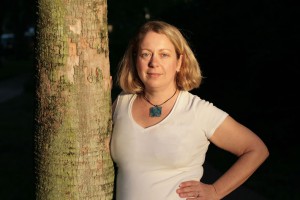
When Julie Armstrong isn’t busy exploring a wide range of literature as an English professor at USF St. Petersburg, she devotes herself to writing books on civil rights.
At the beginning of March, she released her fourth title, The Cambridge Companion to American Civil Rights Literature, an introduction to the key themes, aspects and genres of the subject.
Armstrong, who has a Ph.D. in English and American Literature, said nine of the 10 essays featured in the book were contributed by other scholars. She said the information in the book is relevant to past and present civil rights issues, such as the recent riots in Ferguson, Mo.
“In a larger way, to understand who we are and where we are now, we have to understand our relationship to our past and where we’ve been,” Armstrong said. “It seems so very clear to me that we need more awareness; we need more discourse; we need more knowledge of ways that we can relate to one another in terms of these issues.”
Armstrong, 53, said she received an email a few summers back from the senior editor at Cambridge University Press, asking her to edit the book. She originally thought it was a prank from a colleague, but after further research, she discovered it was legitimate.
“When the cutest boy in school asks you to the dance, what do you think?” said Armstrong, describing her initial reaction to the request. “I felt honored, and then I thought ‘oh wow, this is a big job,’ so I actually have to do the work.”
Armstrong said she was given free rein for her vision for the project’s subject matter. Her drafts and proposals, however, had to go through peer review before being accepted.
“Now I understand why their books are so well received,” Armstrong said. “It’s because it’s very difficult; they really take you through the rigorous process of drafting and redrafting.”
After the peer-review process was complete, Armstrong was able to reach out and contact potential contributors. She wrote the book’s introduction and the chapter “civil rights movement fiction.”
Despite being released in both digital and print formats, it was Armstrong’s first book that was edited entirely online “from start-to-finish.”
“If you think undergraduates procrastinate, professors are worse,” Armstrong said.
The English professor said she learned a lot about civil rights during her book’s two-year editing process, which showed her there is still much to learn about civil rights.
She feels that literature has the power to change people’s views.
“Laws can dictate the way people are supposed to act,” Armstrong said. “And you can change the law, but you can’t really change the way people feel or people’s hearts and minds. And that’s where literature and other other art comes in.”
Although she had an early interest in literature and American history, it was her upbringing in Birmingham, Ala., a beacon of the civil rights movement, that helped steer Armstrong toward the field.
She will use that inspiration for her next book, Birmingham Stories, a collection of essays and untold stories about “everyday people and places” in the iconic civil rights city. Armstrong defines it as her “heart book.”
“The civil-rights movement did not end in the ’60s # it is now,” Armstrong said. “These issues are not dead. They are ongoing.”


